Iranian Writers Say They Will Not Submit To Government Censorship
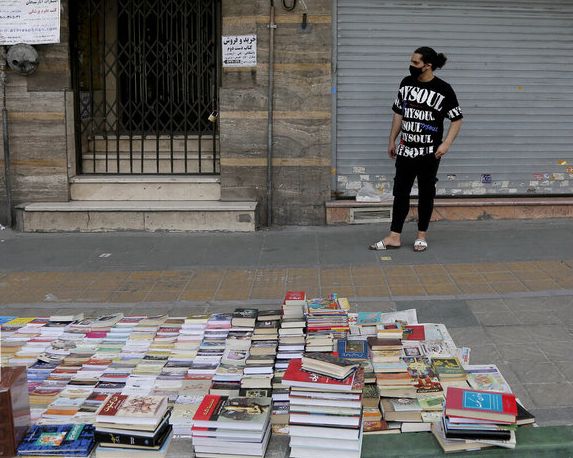
Sixty Iranian writers and poets have announced they will publish their works without submission to Islamic Republic censors until such time when censorship stops in Iran.

Sixty Iranian writers and poets have announced they will publish their works without submission to Islamic Republic censors until such time when censorship stops in Iran.
The announcement titled “We the literary” was published by a Canadian Iranian writer, Fereshteh Molavi, but it is signed by writers from Iran and the diaspora.
The clerical government in Iran requires all books, films and music be submitted for review be censors before publication or screening. Works by artists perceived to have dissident ideas usually get rejected and others are altered to fit the religious and political boundaries of the authoritarian regime. Some books have been in limbo for years, waiting for permission.
The signatories say, “We are regard democratic freedoms, especially freedom of thought and expression as well as freedom to write as our civil and citizenship rights.”
The writers also said that they pledge to undertake their share of duty “in building the Iran of tomorrow.”
More than three hundred Iranian translators in November joined other professional groups expressing their support for the ongoing protest movement against the Islamic Republic.
They announced that they will stand against all types of discrimination and prohibitions that have made life in Iran similar to “mere survival in forced labor camps.”
They also condemned the killing of civilians and children, saying like others in Iran and abroad they stand with “Woman, Life, Freedom” movement.
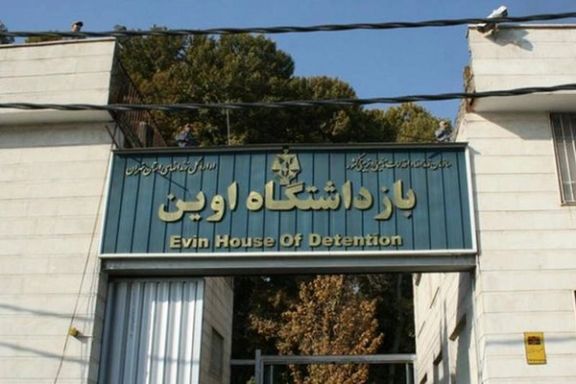
Since the early days of protests many Iranians say on social media: “If protests stop, regime will kill us all”. While unrest still continues, the government has stepped up “legal” killings.
Nearly 80 days into the protests, the regime seems exhausted and frustrated over its inability to quell the uprising, resorting to more executions, harsher sentences, extrajudicial detentions and intimidations.
Remarks by a member of the parliament national security committee, Shahriar Haydari, published on Friday show that the regime might be changing course in dealing with the unrest that convulsed Iran following the death in custody of Mahsa Amini. Trying to project the idea that the protests have come to an end, he said that about the 90 percent of the people who were out on streets were protesters and only 10 percent were “rioters” a term that the authorities, including the Supreme Leader and the president, have been using to describe the popular uprising.
The change in the discourse may seem like an acknowledgment of the demands of the people in face of the dire economic conditions and lack of freedoms, but it can simply serve as a pretext for the regime to execute the “10 percent,” whom Haydari described as “rioters, thugs, terrorists, and agents of foreign intelligence services.” The Islamic Republic has ways to bend the laws of the country to execute people for on trumped up charges in the absence of due process of law.
Despite growing warnings by foreign countries and international organizations over the crackdown on dissent, the Islamic Republic has intensified repressive measures with reports of accelerated death sentences and executions. The clampdown is especially harsh in Kurdish and Baluch majority regions in western and southeastern parts of the country.
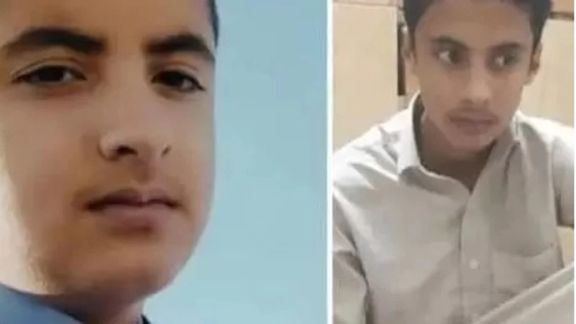
In recent days, Baluch local media reported that two minors – identified as Mohammad Rakhshani and Ali Rakhshani -- are in danger of imminent execution. However, the reports were denied by the prosecutor of Sistan-Baluchistan province. But there are other confirmed reports that at least seven residents of the province – all from the persecuted Baluch ethnic minority – were executed last week.
Social media is also full of audio footage or reports of prisoners who are in critical condition and the regime denies them the necessary medical care to keep them alive. Many of the protesters have been arrested after being injured by shotgun birdshots as well as being beaten by batons or suffering tear gas attacks. Almost none of them are taken to hospitals as there are numerous videos of ambulances transferring the injured directly to detention centers. Some of the protesters have been injured during interrogations and torture after they were arrested. One of the strategies of the regime forces is to keep them in such a bad condition for a long time that they cannot participate in rallies again, even after their probable release.
It seems that the regime has started to release celebrities or prominent dissident figures as a show that it is managing the situation but intensifying pressure on ordinary people whose arrest or deaths would not get a large media attention in the international community.
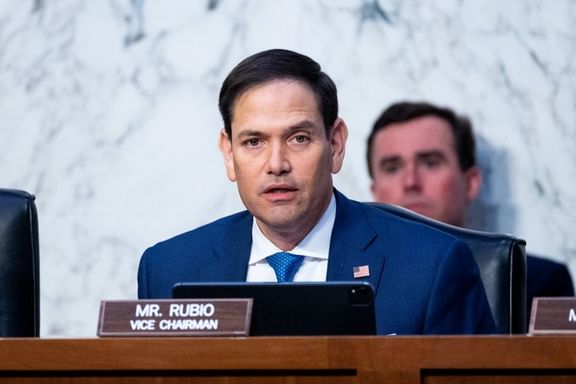
US Republican Senator Marco Rubio has asked the White House to look into reports that a Chinese firm is supplying Iran with technology that can be used against protesters.
NBC news has reported that Tiandy, which is providing facial recognition technology to the Chinese authorities is also equipping the Iranian government with surveillance technology.
Sen, Rubio sent a letter to the Biden administration November 30, obtained by NBC, that the company’s dealings with Iran “raise serious questions about whether Tiandy’s products are being used against peaceful Iranian protesters.”
Human rights organizations say that Iran has killed more than 450 protesters since mid-September and imprisoned thousands, sentencing more than a dozen to death.
The company’s website shows that it has sold equipment to Iran’s notorious Revolutionary Guard and other security agencies, while Intel Corp. lists Tiandy as a partner providing its processors for some of the Chinese firm’s video recording equipment.
Sen. Rubio has asked the State, Treasury and Commerce departments to see if Tiandy has violated US laws against assisting organizations violating human rights.
“I request that you determine and report to the Congress whether Tiandy has engaged in conduct that may meet the criteria for designation pursuant to the authorities provided by Congress,” Rubio wrote.
While several Chinese surveillance firms are under US sanctions, Tiandy is not one of them. Experts say the company is one of the most dangerous among similar Chinese firms.
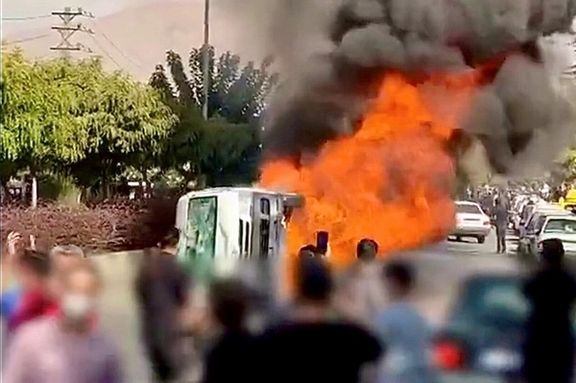
Islamic Republic's Supreme Leader and his loyalists have repeatedly claimed in public that anti-regime protests have ended, but in private they say otherwise.
Nonetheless, documents revealed by hackers who tapped into the database of the IRGGC-linked Fars news agency indicate that Ali Khamenei secretly told his inner circle and military commanders that an end to the protest is not in sight.
Meanwhile, according to the leaked audio file of a recent insiders’ meeting at the Basij Militia HQ focusing on the protests, a top IRGC commander has acknowledged that the protests continue to go ahead with full force.
Khabar Online, a moderate conservative news website in Tehran, in a report Wednesday probed into the continuity of the nationwide uprising in Iran and asked whether the Iranian government and Parliament (Majles) have a true understanding of the nature of the protests that have continued for some 75 days so far. The report also tried to shed light on why the use of force is the government's solution for all problems.
To put the bottom-line upfront, the report concluded that one of the main reasons for continuing protests is in fact the government and the parliament's lack of understanding of the situation. Even insider analysts over-emphasize the role of the current economic crisis as a driving force fueling public outrage. The article said that any good analysis should review the course of events in the past 25 years.
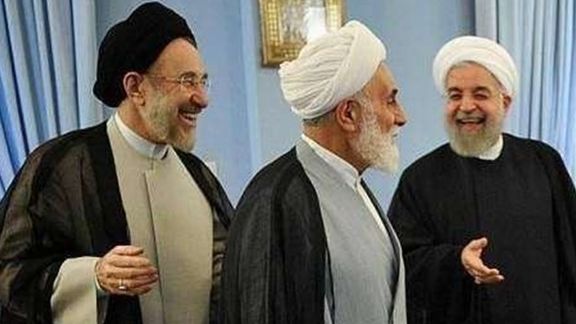
The reformist government that came to power in 1997 was unable to institute any political and economic reforms because hardliners obstructed all routes and created many crises for the government. In mid-2000s the government was handed over to conservatives who ruled out political reforms altogether. The nuclear program pursued by hardliners led to US and international sanctions against Iran.
Moderate Hassan Rouhani's victory in 2013 was aimed at eliminating grievances about the economic situation by bringing about a breakthrough in the nuclear issue, but hardliners played the same obstructive role with the resulting economic crisis fuelling protests in 2017-2019.
US-based sociologist Asef Bayat told Etemad newspaper recently that "The current protests have brought together the middle and lower classes as well as ethnic groups such as Kurds, Azaris, and Baluchis with the slogan of 'Woman, Life, Freedom'. This has given a new characteristic to the protests while at the same time concerns about women and their dignity are at the center of the movement." Bayat added, "It looks like the people are determined to take back their lost youth, lost life and lost joys and are looking for a decent, ordinary life denied by the government which has no idea about the powerful quest for normal life."
Bayat attached high importance to how Iranian women felt humiliated by the government, its compulsory hijab rule and its morality police as a factor in the protests. She said it was a similar humiliation felt also by men that brought them to the streets in protest.
Another Iranian sociologist, Yousef Abazari highlighted the emergence of a new generation that cannot stand the dictatorship of existing rulers.
The scholars said that because of all kinds of restrictions, and general mismanagement, society has left behind all peaceful stages and has entered a phase characterized by anger while the government's only solution is suppressing this anger. This, they said, can only deepen and strengthen the sulking between the people and the government

People in Iran’s Sunni city of Zahedan held big rallies Thursday to support their religious leader after a leaked audio revealed regime’s plan to defame him.
Earlier this week the hacktivist group Black Reward targeted the data servers of Fars news agency, a media network affiliated with the Islamic Republic's Revolutionary Guard, and released several documents to media indicating that Supreme Leader Ali Khamenei is dismayed by the remarks made by Mowlavi Abdolhamid, the most prominent religious leader of Iran's largely Sunni Baluch population living in Sistan-Baluchistan province.
However, the documents also revealed that instead of arresting or harming him, Khamenei ordered underlings to tarnish Abdolhamid’s reputation so that his influence would decrease among the Sunni population of the country, about 15 million people who are mainly Baluch or Kurd.
Abdolhamid's popularity is largely because of his willingness to challenge the absolute authority of Supreme Leader Ali Khamenei. Earlier in November, the outspoken Sunni Imam said women, ethnic and religious groups have faced discrimination after the establishment of the Islamic Republic in 1979. He was also brave enough to blame Khamenei for the attack on protesters in his hometown, Zahedan, known as the Bloody Friday. It took place September 30, when security forces killed close to 100 people.
According to videos and photos published on Thursday, the residents of Zahedan held a protest rally in support of Abdolhamid, carrying banners that read "Sheikh-ul-Islam is our red line" referring to the outspoken cleric.
The protests took place about two days after a group of Sunni religious leaders in several Baluch cities called on the Islamic Republic to stop its repression machinery used against protesters. In a joint video statement released on Monday, prayer Imams and religious scholars from Khash, Taftan, Mirjaveh and their neighboring towns decried the regime’s appalling attacks against the people of Kurdish majority cities, the killings on September 30 dubbed as ‘Bloody Friday’ in Zahedan, and a brutal crackdown of Khash residents on November 4, among others.
In November, Abdolhamid called for an internationally monitored referendum, saying by killing and suppression the government cannot push back a nation.
The Thursday protests in Zahedan took place as President Ebrahim Raisi visited the Kurdish city of Sanandaj, which has been the scene of fierce clashes between people and security forces since the Islamic Republic intensified its military presence in Kurdish-majority cities in western Iran. The fact that everyone in Iran is aware of the government’s ploy to sow division among the Sunnis, especially following the leak, apparently has not changed the regime’s plans at all as Raisi tried to pretend that he is popular among the Kurdish population. He even showed up at the city’s market and said prayers in a Sunni mosque, something that is unprecedented and frowned upon in a normal situation.
Of course, the situation is not normal for the Islamic Republic as universities across the country are employing extra security forces to quash student protests, which are supported by about 200 universities worldwide, and the international outcry over the regime’s crackdown on popular antigovernment protests is growing day by day. Moreover, the nationwide strikes by truckers as well as employees of numerous factories, especially in oil, gas, petrochemicals and steel industries, are garnering more support every day, crippling the country’s supply chain and exports.
Meanwhile, several grassroot groups have called for protests on December 5, 6, and 7. December 7 marks the anniversary of the 1953 murder of several students at University of Tehran and is traditionally considered a day of nationwide rallies in Iran.
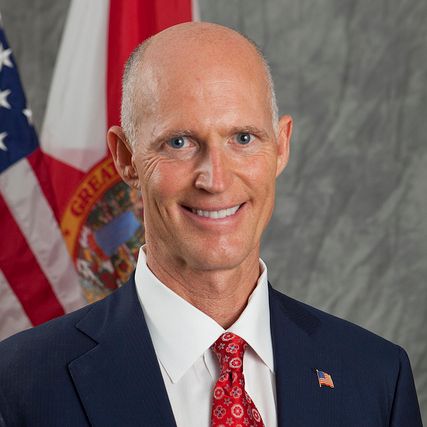
The Biden Administration does not care about Iranian protesters, a Republican Senator has said, while a Democrat demanded more action by the United States.
Senator Rick Scott of Florida told Iran International’s Arash Alaei that “We shouldn't be having any conversation with Iran other than on when are they going to stop killing their own citizens and stop trying to develop a nuclear weapon to be able to annihilate Israel.”
As he was asked to comment on the US response to popular protests and the killing of hundreds of civilians in Iran, he accused the Biden Administration of being indifferent. “I'm disgusted that Biden admin does nothing about it,” he said.
The administration has voiced support for the protesters and issued a series of sanctions against officials who are engaged in serious human rights violations.
Democratic Senator Tim Kaine saying that more should be done than just sanctions, expressed hope that Congress can act on it own to support Iranian protesters.
“There's a lot going on now between now and year-end, but I wouldn't be surprised if you see some action by Congress to express support for protesters,” Kaine maintained,
He added, “Dictators are realizing that people cannot be squashed permanently, and they're also realizing in Vladimir Putin's case that they cannot act with impunity and get what they want. Authoritarians are learning that they just can't dictate terms to people anymore.”